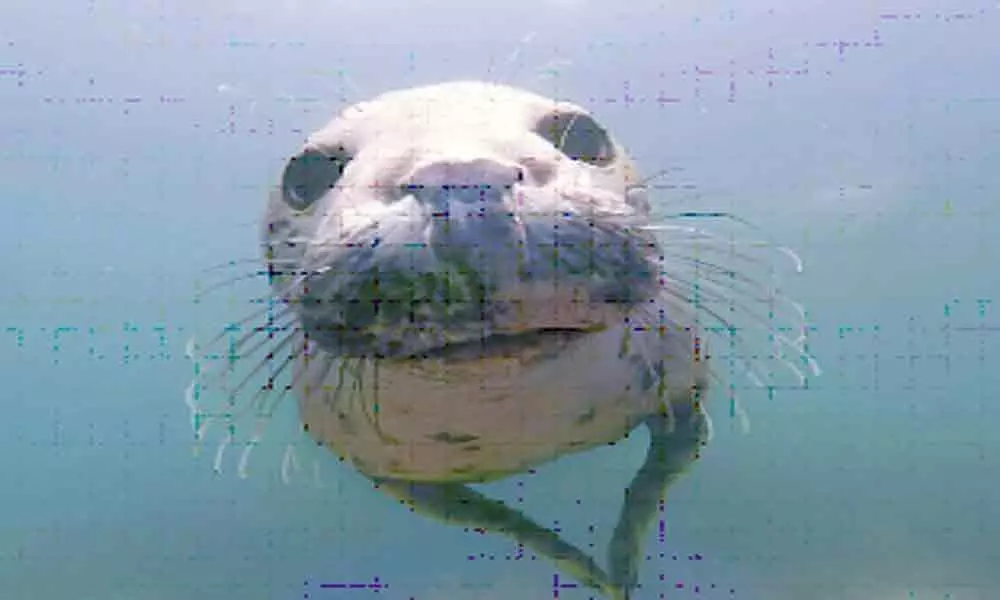Grey seals clap underwater to communicate: Study

Wild grey seals can clap their flippers underwater during the breeding season, as a show of strength that warns off competitors, and advertises to potential mates, a study based on video footage has found.
Wild grey seals can clap their flippers underwater during the breeding season, as a show of strength that warns off competitors, and advertises to potential mates, a study based on video footage has found.This is the first time a seal has been seen clapping completely underwater using its front flippers, according to the study published in the journal Marine Mammal Science.
"The discovery of 'clapping seals' might not seem that surprising, after all, they're famous for clapping in zoos and aquaria," said lead study author, David Hocking, from Monash University in Australia. "But where zoo animals are often trained to clap for our entertainment -- these grey seals are doing it in the wild of their own accord," Hocking said. The research is based on video footage collected by naturalist Ben Burville, a visiting researcher at Newcastle University in the UK.
The footage -- which took Burville 17 years of diving to catch on film -- shows a male grey seal clapping its paw-like flippers to produce a gunshot-like 'crack' sound, researchers said. "The clap was incredibly loud and at first I found it hard to believe what I had seen," Burville said. "Other marine mammal species can produce similar types of percussive sound by slapping the water with their body or tail," said Associate Professor Alistair Evans from Monash University.
The loud high-frequency noise produced by clapping cuts through background noise, sending out a clear signal to any other seals in the area. "Depending on the context, the claps may help to ward off competitors or attract potential mates," Hocking said. He said clapping seals demonstrates just how much there still is to learn about the animals living around us.
Clapping appears to be an important social behaviour for grey seals, so anything that disturbed it could impact breeding success and survival for this species, the researchers noted. "Human noise pollution is known to interfere with other forms of marine mammal communication, including whale song," Hocking said. "But if we do not know a behaviour exists, we cannot easily act to protect it," he said.










